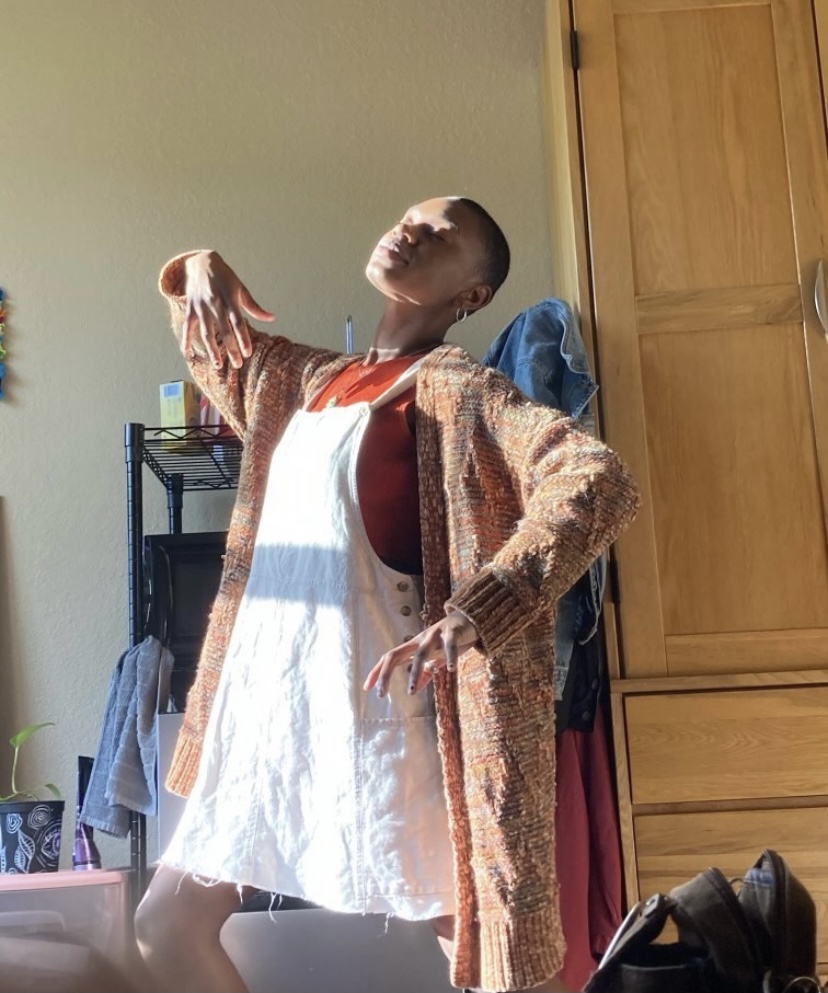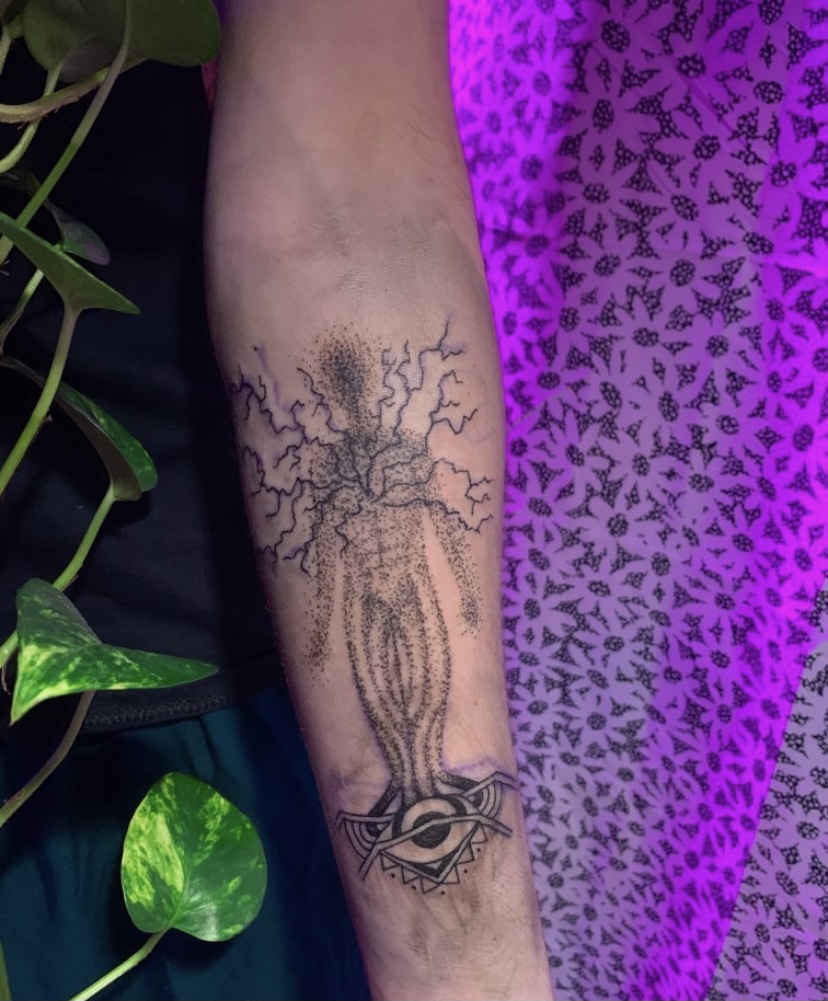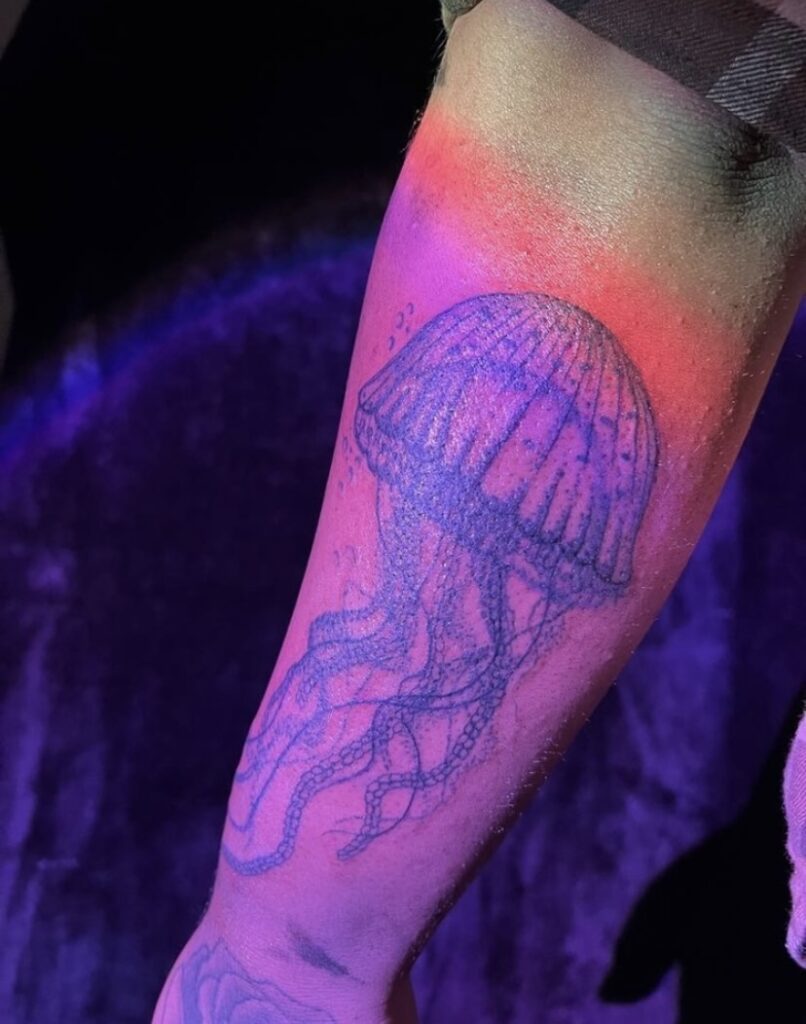Jhanée Kimbrough, a junior studying studio arts at Western Carolina University, is working toward her goal of being a traveling tattoo artist while capturing the important aspect of connecting with people through tattooing.

To Kimbrough, tattooing is a very intimate way to connect with people. Two people sit for up to hours while one drives a needle into the other’s skin, permanently marking them and permanently transferring some of the artist’s energy and creativity into the other. Kimbrough tries to make sure she goes into sessions with a positive mindset so that it is a more pleasant experience for all.
If an artist digs too deep into the skin, it can be a representation of how they are feeling and how they are inadvertently harming a client, said Kimbrough.
“I try to make sure my energy is nice and pure with a lot of good intentions… just so it’s not a painful process. It’s more of a beautiful process”, she said.

She started tattooing by stick-and-poke in 2019 in her dorm freshman year at WCU with her friend to make a little extra money. She realized she had some skill with stick-and-poke tattoos. From there she decided to invest more time into improving her skills.
Hand-poked tattoos are how tattooing started. Hand-poking is an ancient technique, with the oldest evidence of tattoos being on Ӧtzi the Iceman from around 5,300 years ago. Hand-poking tattoos are done by using a needle to drive ink under the skin, dot by dot.
She was drawn in and began learning more about hand-poked tattoos. She also began knowing more about the tattoo process, understanding machinery better, and learning more about the actual flesh that she was tattooing to develop her background knowledge.
Kimbrough has always been artistic growing up. She went to a high school that focused on the arts before she moved to North Carolina and is now studying studio arts, which helps give her additional skills to utilize while tattooing.
Hand-poked tattoos take longer than a machine but tend to hurt less and heal a bit quicker. However, they do have a bad reputation compared to machine tattoos because they are seen as a more amateur form of tattooing. There is a fear that they will be improperly done, resulting in infection, a shabby design or a design that fades. When done correctly, they can be just as beautiful as machine tattoos. Many clients prefer a machine, which inspired Kimbrough to learn more about machines and machine tattoos.
She began investing in different machines so that she could take her game to the next level. She purchased a tattoo gun about a year ago and tried the rotary gun, the coil gun and the tattoo pen. Machine-done tattoos tend to have a crisper and bolder look to them.
Kimbrough said she prefers the hand-poked style of tattooing because it is “an energetic exchange.”
“I feel like hand-poked is a more intimate process,” she said. Hand-poking, and tattooing in general, requires locking into a zone so the artist can see what they need to see. Tattooing requires somebody to be present in the moment as opposed to other forms of art where one can zone out. “I can’t make a mistake on somebody’s body. That’s why I have to be there, I have to be present when I’m doing the tattoo,” she said. Trust is another big factor for her while tattooing.
Artists and clients need to trust each other, otherwise the tattoo may not turn out good and the experience may be a negative one. She has had clients that she hadn’t met before say they trust her abilities, which means a lot to her.

Kimbrough appreciates that she doesn’t have to survive off of tattooing yet, so she still has the freedom to have fun with tattooing and she still has the ability to connect with people. She said that tattooing is a symbol of her love. She likes to call tattooing a “play.”
“Once you put a job label on it, then that’s when it becomes this little tedious thing that I have to do,” she said. She wants to be able to keep doing what she loves without adding the banality of a job.
Kimbrough’s minimum is $80 with the price increasing depending on the design’s size and intricacy, which is discussed during the session or consultation.
To her, it is not about the money. When she was doing stick-and-pokes for $5 freshman year, it wasn’t about money. Even still, the most important aspects of it to her are building relationships with others, having good energy and connection, and establishing trust with others.



